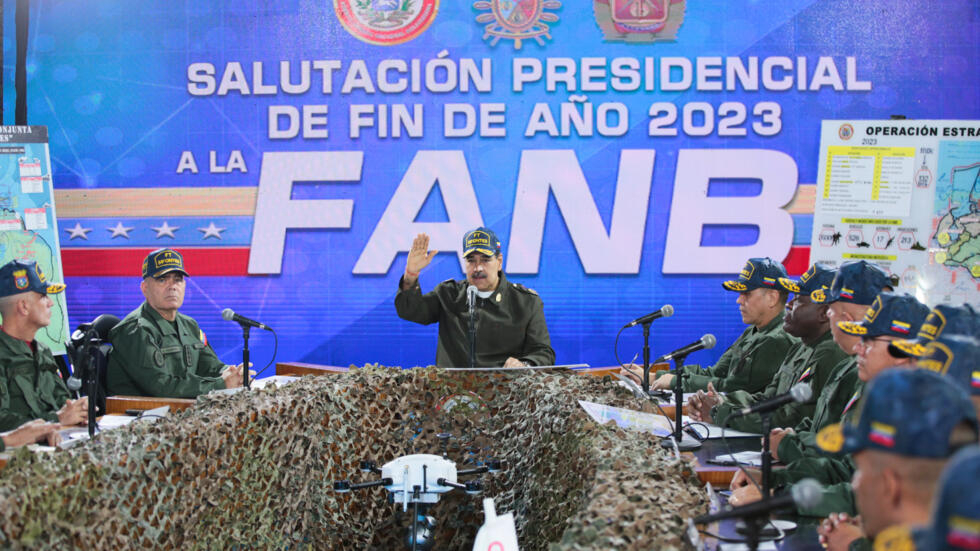
CARACAS, Dec 29, 2023 (BSS/AFP) - Venezuela's President Nicolas Maduro on Thursday ordered more than 5,600 military personnel to participate in a "defensive" exercise near the border with Guyana, in response to Britain sending a warship to the area.
Maduro said he was launching "a joint action of a defensive nature in response to the provocation and threat of the United Kingdom against peace and the sovereignty of our country."
Britain said Sunday it would divert the patrol vessel HMS Trent to Guyana, a former British colony, amid the South American country's simmering territorial dispute with neighboring Venezuela over the oil-rich Essequibo region.
A Guyana foreign ministry source, speaking on condition of anonymity, told AFP the ship was due to arrive Friday and would be in its territory for "less than a week" for open sea defense exercises. The ship will not dock in Georgetown.
The television broadcast accompanying Maduro's announcement showed fighter jets participating in the Venezuelan exercise, as well as ships and ocean patrol vessels.
The Venezuelan government earlier asked Guyana, in a statement, "to take immediate action for the withdrawal of the HMS Trent, and to refrain from involving military powers in the territorial controversy."
Guyana President Irfaan Ali sought to soothe tensions, saying Thursday that "neither Venezuela nor any other State has anything to fear from activities within Guyana's sovereign territory or waters."
"We harbor no ambitions or intentions to covet what does not belong to us. We are fully committed to peaceful relations with our neighbors and all countries in our Region," he said in a statement on Facebook, sending "best wishes to the people of Venezuela, our neighbors."
Guyana Vice President Bharrat Jagdeo said earlier that the HMS Trent's visit was part of "long-planned" and "routine" measures to build the country's defenses.
- 'We are warriors' -
Maduro claims that Essequibo -- which makes up about two-thirds of Guyana's territory -- is actually Venezuelan land, a decades-old contention that has flared since massive oil deposits were found in its waters.
The rising tensions have raised fears in the region of a potential conflict over the remote area of 160,000 square kilometers (62,000 square miles).
The South American neighbors, during a meeting between Maduro and Ali earlier this month, agreed not to resort to force to settle the dispute.
"We believe in diplomacy, in dialogue, in peace," said Maduro.
"But no one should threaten Venezuela, no one should mess with Venezuela. We are a people of peace, but we are warriors and this threat is unacceptable for any sovereign country," he said.
"The threat of the decadent, rotten, ex-empire of the United Kingdom is unacceptable."
A UK foreign minister, David Rutley, visited Guyana earlier this month and reiterated sovereign borders "must be respected" and that London would work internationally "to ensure the territorial integrity of Guyana is upheld."
Maduro's government held a controversial referendum on December 3 in which 95 percent of voters, according to officials in the hard-line leftist government, supported declaring Venezuela the rightful owner of Essequibo.
He has since started legal maneuvers to create a Venezuelan province in Essequibo and ordered the state oil company to issue licenses for extracting crude in the region.
Guyana's Ali has branded the moves a "grave threat to international peace and security."